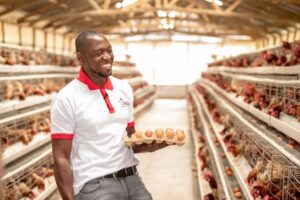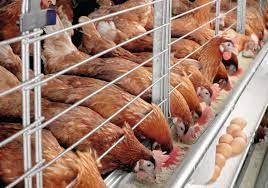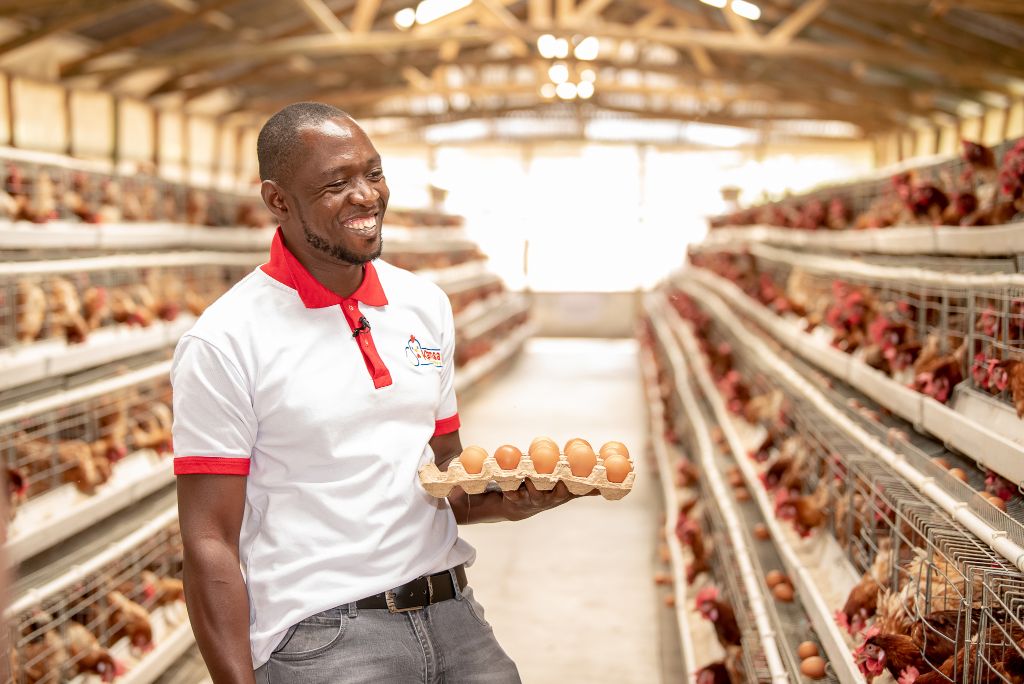Steve Sande earns millions by selling eggs from his 150,000 chickens. He doesn’t regret leaving his work at Unga Limited to pursue a career in chicken keeping.
Knowledge and Expertise
His training in Food Science and Technology has helped him successfully operate his Kamsa poultry farm in Kisumu West sub-county.
“I left Unga Limited and started my agribusiness with 500 chickens. I attended numerous commercial poultry production meetings and met with several businesspeople during this period,” Sande reveals.
Sande’s interest in chicken farming developed while still working at Unga Limited. He began by growing kienyeji hens for meat and eggs before focusing only on egg production.
A Humble Start

“I originally got 20 chicks from neighbours, and many of them perished within three months.” “I didn’t give up,” he added, “and I acquired another 100 kienyeji chicks, then 300, and by 2015, when I resigned, I had 500 birds.”
He realized after a few years that the demand for eggs outweighed the need for meat, so he switched from kienyeji chicken to superior breed broilers.
Initially, Sande needed to grow his business but lacked the funds, so he sought four banks for loans, all of which turned him down.
Grants and Loans
Banks were hesitant to lend to any farming endeavour at the time, he added, since it was dangerous, but that has now changed.
“However, as a result of my interactions with other agribusiness entrepreneurs, I learned of a call for applications for a grant from the Global Alliance for Improved Nutrition, and I submitted for the award,” she says, “he said
“I had switched from kienyeji to hybrid layers and had over 2,000 layers at the time. I’d used up all of my early resources and needed more money to expand.”
Sande sought and was awarded a KES3.5 million grant from GAIN after going through a rigorous process. He used the funds to build a deep litter system chicken coop and purchase the necessary structures and equipment.
He explained that the GAIN program promotes technical help and that in the food business, quality assurance is required to standardize the product for the market.
Marketing of Eggs

The food technologist graduate sells 80percent of his eggs locally, with the remainder going to Kisumu town. He sells to grocery stores, who subsequently sell to consumers, ensuring that the eggs are inexpensive.
Sande produces 150,000 trays every day at the moment. He spends roughly Sh210 to produce a tray of eggs, which he then sells for Sh280 at the farm gate and Sh300 at the supermarket.
He claims that 60-70 per cent of Kenyan eggs are imported, and he plans to boost output to 20,000 birds in two to three years and 100,000 birds in five years.
Advice for Beginners
To ensure optimum results, he urged farmers and anybody interested in starting a chicken farm to conduct a study first, invest in a decent housing facility for the chickens, and then purchase high breed chicks.
“Begin with what you have and where you are. You don’t need to raise a big number of chicks; start with 60 and learn to return a portion of the profits to your business,” he advises.
Food for Thought
Is the sale of eggs worth it in Kenya?
Distributors in Kenya make roughly Sh100 each crate, therefore selling 500 crates per week might net you Sh200,000 per month, depending on your location, investment, and population.







